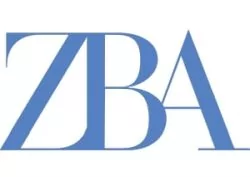- Introduction
India witnessed a severe and unanticipated second wave of COVID-19 in April-June 2021. This highly infectious second wave disrupted every aspect of day-to-day living including commercial activity. Performance of contractual obligations including timely implementation of approved resolution plans under the Insolvency and Bankruptcy Code, 2016 ("Code") was also impaired. Consequently, successful resolution applicants rushed to the NCLTs seeking relaxations in implementing approved resolution plans or rehabilitation of zombie companies.
This article analyses whether NCLTs are the appropriate forum for providing extension or any relief to a successful resolution applicant after approval of the resolution plan under the Code.
- Resolution Plan- A Commercial Contract
A resolution plan is a contract between a resolution applicant and the committee of creditors ("CoC") of a corporate debtor ("CD"). This precisely why the feasibility and viability of a resolution plan is a commercial decision of the CoC, which is not open to judicial review. Under Section 31 of the Code, NCLT (i.e., Adjudicating Authority) is merely to inquire whether the requirements of Section 30(2) of the Code have been satisfied – i.e., the interests of all stakeholders of a CD are protected and that the resolution plan does not contravene any law. The NCLT approval of a resolution plan (approved by CoC) is to give binding effect to the resolution plan vis-à-vis third parties (including government bodies, guarantors and other stakeholders of a CD) and not to take away the intrinsic nature of the resolution plan, which is contractual. The Supreme Court has emphasized this aspect in several pronouncements. Consequently, any modification to an approved resolution plan including extension of timeline for implementation should be left exclusively to the commercial decision of the CoC and not the NCLTs.
- Extension of Timelines of Approved Resolution Plans
The NCLAT in Kotak Mahindra Bank Ltd. v. A.P. Enterprises Pvt. Ltd.1 ("Kotak Mahindra") excluded the lockdown period from the payment schedule under an approved resolution plan. The NCLAT largely relied on the Supreme Court's order on extension of limitation period2 under general and special laws and Regulation 40C of the IBBI (Insolvency Resolution Process for Corporate Persons) Regulations 2016.
It is worth emphasizing here that the relaxations provided by the Supreme Court and IBBI were to statutory periods of limitation and not timelines consensually agreed between parties to an approved resolution plan. Recently, NCLT, Kolkata bench in Indian Overseas Bank v. R.D.Rubber Reclaim Limited 3 ("R.D.Rubber") agreed that there is no provision in the Code for intervention by NCLT post approval of the resolution plan. Interestingly, the NCLT concluded that in absence of a specific provision under the Code, the NCLT can intervene by invoking rule 154 of NCLT Rules, 2016 as a force majeure event on account of COVID-19. Accordingly, the NCLT modified the payment schedule of the approved resolution plan on the ground of force majeure.
- Force Majeure a Justification for Modifying an Approved Resolution Plan?
Force majeure is a contractual stipulation. Whether COVID-19 can be construed as a force majeure event depends on the wording of the clause and the surrounding circumstances. Interestingly, neither the NCLAT in Kotak Mahindra nor the NCLT in R.D. Rubber discussed or even referred to a force majeure clause in the approved resolution plans. Clearly courts should not excuse performance of an obligation for force majeure in the absence of a contractual stipulation to that effect. Extending timelines under an approved resolution plan on force majeure grounds, (in the absence of any such provision) effectively amounts to rewriting the contract between the resolution applicant and the COC.
- Conclusion- The Right Balance
Undoubtedly, the massive impact of second wave of COVID-19 has upended commerce in India. There is no gainsaying that many resolution applicants need additional time and appropriate adjustments to approved resolution plans are required.
However, such adjustments, even on humanitarian grounds, should be within the contours of the law. The expedients adopted in R.D. Rubber and Kotak Mahindra, severely undermine the objective of the Code and ultimately adversely impact Indian banking and finance. It is important that the NCLTs differentiate between statutory timelines under the Code, conferring judicial discretion for extension on courts and tribunals, as opposed to contractual timelines, which can only be relaxed by agreement of parties. Clear guidance from the Supreme Court on this issue is urgently required
Footnotes
1. Company Appeal (AT) (Insolvency) No. 146 of 2021
2. In Re: Cognizance For Extension of Limitation (Suo Motu Writ Petition (Civil) No (s) of 3/2020)
3. IA (IB)/496./KB/2021 in CP (IB) No. 1724/KB/2018
4. "15. Power to extend time.− The Tribunal may extend the time appointed by these rules or fixed by any order, for doing any act or taking any proceeding, upon such terms, if any, as the justice of the case may require, and any enlargement may be ordered, although the application therefore is not made until after the expiration of the time appointed or allowed."
The above is a generic analysis and should not be regarded as a substitute for specific advice based on the facts of a client's objectives and specific commercial agreements reached. Please do reach out to us at mail@zba.co.in for any queries.


